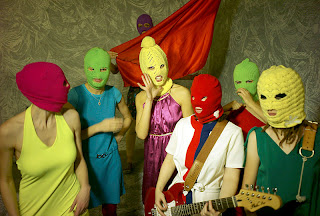After queuing for well over an hour for Yolande Moreau's Henri (are you sensing that I'm over queues yet, or do I need to be less subtle!), there was no room at the inn and the majority of the line was turned away...
The Last Days on Mars
Next up on my list (and another queue was awaiting) was Ruairi Robinson's science fiction film The Last Days on Mars which was part-funded by Bord Scannan na hEireann/Irish Film Board. It was great to hear the huge cheer that the Film Board logo received when it appeared on screen during the opening credits. A routine excavation goes horribly wrong for the crew of Tantalus Base on Mars, just hours before their mission was due to come to a close. As the group get picked off one by one, the remaining group hold out for the arrival of the relief ship Aurora. Robinson's film is an extremely accomplished piece of work and a fine addition to the sci-fi genre. It keeps you on the edge of your seat and builds momentum nicely as time starts running out for the constantly reducing-in-number crew. It got a great response from the Cannes audience too.
Mohammad Rasoulof
Playing in Un Certain Regard was Iranian director Mohammad Rasoulof's Manuscripts Don't Burn. Based on real events, it follows the persecution of intellectuals in Iran and the determination of writers to get their work published without censorship. Khosrow and Morteza are hired to carry out an assassination to keep a writer's manuscript from being published, but they need to make it look like a suicide. But things don't go according to plan and there are other copies of the unpublished work being held by friends which also need to be tracked down and the minders silenced before their job is complete. It's a compelling film by Rasoulof (who also wrote the screenplay) highlighting the difficulties experienced by artists and writers in Iran.
Only Lovers Left Alive
Jim Jarmusch returns with Only Lovers Left Alive, a vampire tale set in Detroit and Tangier. Adam and Eve (Tom Hiddleston and Tilda Swinton) have been lovers for centuries. Living separately as the film opens he's depressed by the state of the human race (or 'zombies' as he calls us!) so Eve feels the need to leave her beloved Tangier to be with him. There's a long build-up to the lovers being reunited and the pace is rather slow. Jarmusch clearly enjoys all the references to their amazing pasts and to their artistic creations that they handed onto others (Shakespeare included!) so that their work could live but they could remain in the shadows. While this joke gets overly laboured, it does help to define the tone of the film. The story gets going when Eve's sister Ava (Mia Wasikowska) turns up and unsettles their world. The lighting is dark throughout and the fine actors aren't overly stretched but many will love Jarmusch's take on the now familiar world of vampires on film.
Jeune et Jolie/Young and Beautiful
And then no sooner had it all begun than it was all coming to an end and I found myself in a queue (where else?!) for Francois Ozon's Jeune et Jolie/Young and Beautiful. It's a coming-of-age story of a 17-year-old girl during the course of one year of her life. Broken down into 4 chapters/seasons, we begin in summer where Isabelle (a wonderful Marine Vacth), on holidays with her family, meets fellow holidaymaker Felix from Germany. After losing her virginity to him on the beach, the complex Isabelle retreats from him, coldly brushing him off. What develops over the next three seasons is a development of this sexual awakening where the troubled and distant Isabelle makes some surprising life choices. It's a story that's been told in different ways before, but Vacth is simply captivating. Perhaps one of the best things that can be said for a film at this stage in Cannes is that it completely holds your attention (as fatigue is setting in for everyone at this stage), and this film did just that. A good choice of film to close Cannes 2013 for me.
Until next year Cannes...
Ross Keane
IFI Director
























+and+Neil+when+Neil+officially+donated+his+research+and+document+collection+to+the+IFI+Irish+film+Archive.jpg)



